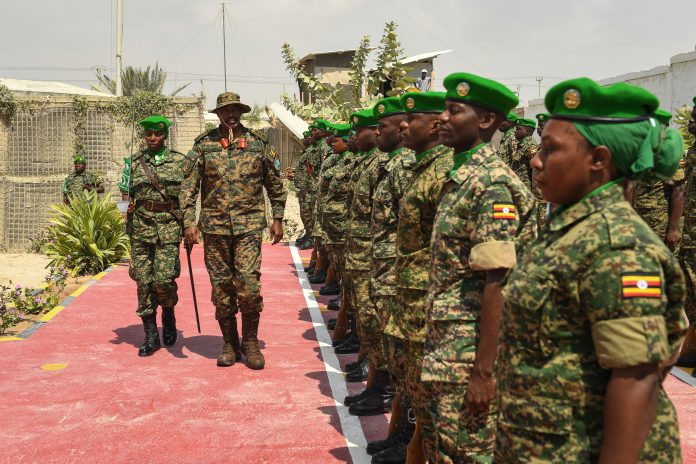Mogadishu (Caasimada Online) – The African Union Transition Mission in Somalia (ATMIS) Force is facing a major crisis, as reports have emerged of troops who served in the peacekeeping mission not receiving their pay.
According to sources, soldiers from Uganda who have served in the mission over the past 27 months have gone without compensation. This comes as a surprise, as some of the largest contributors to the mission, such as the European Union (EU), have been disbursing funds to support peacekeeping efforts.
The EU is responsible for funding at least 5,000 soldiers in Somalia and confirmed disbursing up to $792.2 million last year for the African Union’s 2021-2024 operations in Somalia.
Despite this, the troops who left Somalia in December 2022 have yet to be paid in full. Some sources claim that the peacekeepers from Uganda have missed a portion of their pay over the past three years.
According to a diplomat from an EU country, the issue does not lie with the EU, as the payment of allowances to soldiers is the responsibility of the African partners.
However, multiple sources in the security sector claim that the problem goes deeper, with numerous battle groups claiming arrears, in addition to a decrease in allowance rates from $1,028 to $460, which is not even being paid.
The Junior Minister for Defence, Jacob Oboth, confirmed the situation in Parliament on February 2, stating that the EU funds the entire mission and still needs to send the necessary funds.
The EU’s inability to fully fund the peacekeeping mission has been attributed to its current overstretch in the Ukraine war and its suffering mission fatigue in Somalia, where it has spent over $2.5 billion over the past 15 years.
Last week, leaders from frontline countries met in Mogadishu to discuss ongoing efforts to crack down on Al-Shabaab militants, while President Hassan Sheikh Mohamud provided them with a report on the progress.
On the other hand, some Troops Contributing Nations, such as the Kenyan Defense Forces, have taken a different approach and budgeted for the soldiers’ salaries in their domestic budgetary adjustments, reimbursing them once the EU and other partners wire the money to government accounts. This means that arrears may no longer be an issue for some nations.



